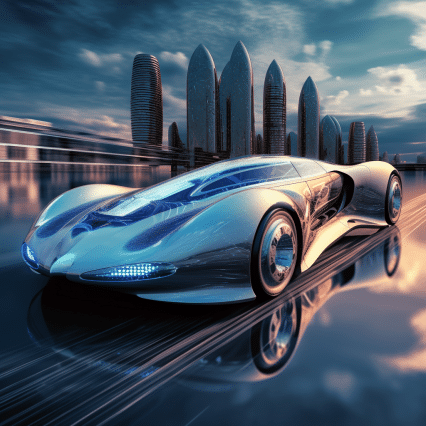Introduction
The future of fuel is a topic that has sparked considerable debate and concern in recent years. As we become increasingly aware of our environmental footprint and the finite nature of fossil fuels, the quest for sustainable and efficient alternative energy sources has become more critical. But what does the future hold for fuel, particularly in cars? Let's delve into this discussion.
The Current State of Fuel
The Role of Fossil Fuels
Fossil fuels, primarily petroleum, diesel, and natural gas have been the mainstay of the automotive industry for over a century. These fuels have powered countless journeys, facilitated global trade, and spurred economic development. Yet, they are not without their drawbacks.
The Environmental Impact
Burning fossil fuels releases harmful pollutants into the atmosphere, contributing significantly to global warming and climate change. There are also concerns about oil spills, extraction practices, and the fact that these fuels are not renewable - we are rapidly depleting the Earth's reserves.
The Need for Change
Fossil fuels' environmental and sustainability issues have ignited a global push towards cleaner, renewable energy sources. This shift is particularly evident in the automotive industry, where alternative energy solutions are not just a possibility but a necessity for our planet's future.
The Future: Alternative Energy Sources
Electric Vehicles
One of the most promising contenders in the alternative energy race is electric vehicles (EVs). Powered by electricity stored in batteries, EVs produce zero tailpipe emissions, making them a much greener alternative to conventional cars.
Advantages of EVs
Besides being environmentally friendly, EVs are highly efficient, have lower operating costs, and offer a smoother, quieter ride. The rapid development of charging infrastructure and advancements in battery technology are making them increasingly practical for everyday use.
Challenges of EVs
However, EVs are not without their challenges. High upfront costs, charging times, and range anxiety remain concerns for many potential buyers. Additionally, battery production and disposal's environmental impact must be factored in.
Hydrogen Fuel Cells
Another promising alternative energy source is hydrogen fuel cells. These devices generate electricity through a chemical reaction between hydrogen and oxygen; the only byproduct is water.
Advantages of Hydrogen Fuel
Hydrogen fuel cells offer several advantages. Like conventional cars, they can be refilled quickly and provide long driving ranges. Furthermore, the entire energy chain can be carbon-neutral if the hydrogen is sourced from renewable energy.
Challenges of Hydrogen Fuel
Despite its potential, hydrogen fuel also faces significant challenges. The infrastructure for hydrogen refuelling is still underdeveloped, and producing hydrogen in an environmentally friendly way can be costly. Moreover, storing and transporting hydrogen presents unique challenges due to its volatile nature.
The Impact of Alternative Energy on Society
The shift towards alternative energy sources has far-reaching implications for society. It promises to reduce our dependence on fossil fuels, decrease pollution, and drive technological innovation. However, it also necessitates changes in infrastructure, job re-skilling, and overcoming resistance to change.
Conclusion
The Road Ahead
The future of fuel is indeed an exciting space to watch. With advancements in technology, we are witnessing a significant shift in the paradigm of automotive energy. Electric vehicles and hydrogen fuel cells are only two of the many alternatives being explored. While there are challenges to overcome, the potential benefits for our environment and society make the pursuit well worth it. The road ahead may be long and winding, but the destination — a sustainable, cleaner future — is undoubtedly worth the journey.
FAQs
- What are some other alternative energy sources for cars? Besides electric and hydrogen-powered vehicles, other potential alternatives include biofuels, natural gas, and even solar power. However, each of these options has its own set of challenges and considerations.
- Why aren't electric vehicles more widespread? While EV adoption is increasing, factors such as high upfront costs, limited driving range, long charging times, and a lack of charging infrastructure are common barriers. However, advancements in technology and increased investment are slowly overcoming these hurdles.
- Are hydrogen fuel cell vehicles better than electric vehicles? Both have their advantages and challenges. EVs are typically more efficient and have a more developed infrastructure, while hydrogen vehicles can be refuelled quickly and have longer driving ranges. The choice between the two often comes down to individual needs and local infrastructure.
- What is the environmental impact of producing batteries for electric vehicles? While EVs have a lower environmental impact during use, the production of batteries can be resource-intensive and generate significant CO2 emissions. However, improvements in technology and recycling processes are helping to reduce this impact.
- How can I contribute to a more sustainable future for fuel? Individuals can contribute by making sustainable choices, such as choosing vehicles with better fuel efficiency or considering alternatives like EVs. Public support for renewable energy policies and initiatives also plays a crucial role in shaping a sustainable future.

